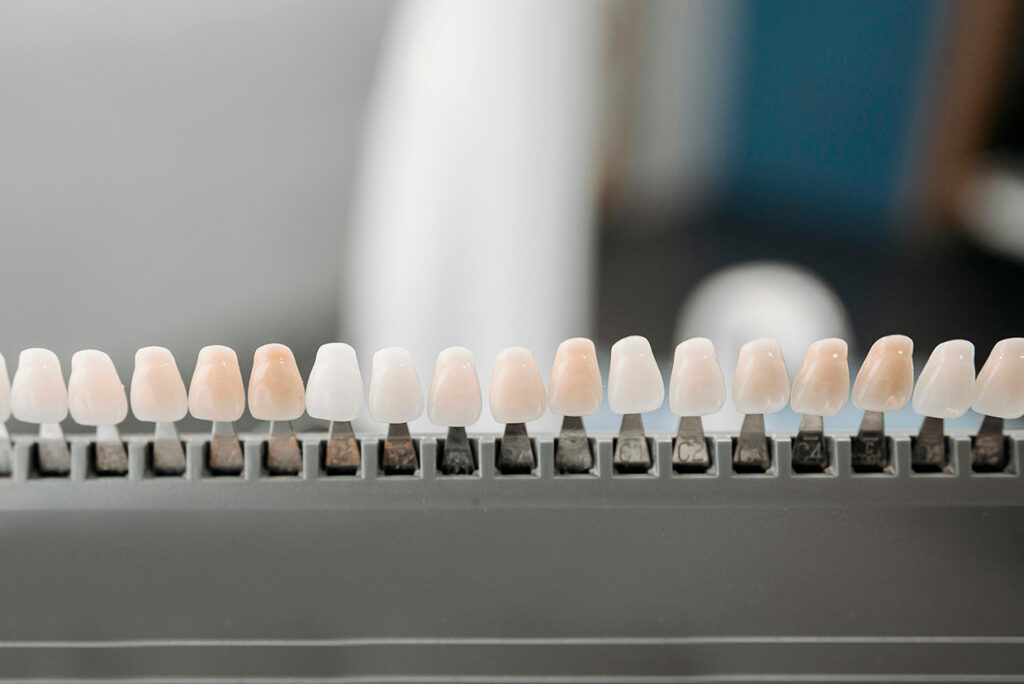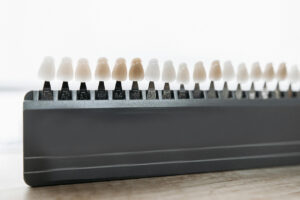Imagine waking up to a smile that lights up the room—no more hiding behind closed lips or avoiding mirrors. This dream can become a reality with veneers, a transformative dental treatment that has been gaining popularity for its ability to address various cosmetic concerns. If you’re curious about how veneers work and the potential they hold for enhancing your smile, you’re in the right place.
Veneers are thin, custom-made shells designed to cover the front surface of your teeth, offering solutions for issues such as discoloration, chips, gaps, and misalignment.
For individuals between the ages of 40 and 70, especially those residing in the United States, the allure of a beautiful and functional smile is undeniable. High costs can deter many from pursuing dental procedures domestically, but dental tourism offers a viable alternative. By understanding how veneers work, you can make informed decisions about investing in your dental health while enjoying a cultural experience abroad.
In this blog post, we will delve into the process of getting veneers, exploring everything from the initial consultation to the final bonding. We’ll also highlight the benefits and considerations to keep in mind. So, if you’re ready to uncover the secrets of veneers and see how they can transform your smile, read on!
Understanding Veneers: What Are They and How Do They Work?
Veneers are a popular cosmetic dental solution designed to enhance the appearance of teeth by addressing issues such as discoloration, chips, and gaps. These thin shells are custom-made to fit over the front surface of your teeth, providing a natural and aesthetically pleasing look. Understanding how veneers work is crucial for anyone considering this transformative dental treatment.
There are two main types of veneers: porcelain and composite. Each type offers distinct advantages and is suited to different dental needs and preferences. Let’s explore these options and the process involved in applying veneers.
Types of Veneers
Veneers can be crafted from various materials, each offering unique benefits. Here’s a closer look at the most common types:
- Porcelain Veneers: Known for their durability and natural appearance, porcelain veneers are custom-made to fit your teeth perfectly. They are stain-resistant and can last between 10 to 15 years with proper care. Porcelain veneers are ideal for addressing significant cosmetic issues and provide a long-lasting solution.
- Composite Veneers: Made from a tooth-colored resin, composite veneers are a more affordable option. They can be applied in a single dental visit and are easier to repair if damaged. However, they are not as durable as porcelain veneers and may require replacement every 5 to 7 years.
Application Process
The process of applying veneers typically involves several steps to ensure a perfect fit and natural appearance. Here’s what you can expect:
- Consultation: Your dentist will assess your dental health and discuss your cosmetic goals. This step is crucial to determine if veneers are the right solution for you.
- Preparation: A small amount of enamel is removed from the front of your teeth to make room for the veneers. This step is essential for ensuring a snug fit.
- Impression: Your dentist will take an impression of your teeth, which is sent to a dental lab where your custom veneers are crafted.
- Bonding: Once your veneers are ready, your dentist will check their fit and color before permanently bonding them to your teeth using a special dental cement.
Understanding the types and application process of veneers can help you make an informed decision about enhancing your smile.
The Benefits of Veneers: Transforming Your Smile
Veneers have become a popular choice for those seeking to enhance their smiles, offering a range of benefits that go beyond mere aesthetics. These thin, custom-made shells are designed to cover the front surface of your teeth, addressing issues such as discoloration, chips, and gaps. Understanding how veneers work can help you appreciate why they are a favored option for smile enhancement.
One of the primary advantages of veneers is their ability to provide a natural and aesthetically pleasing appearance. Made from materials like porcelain or composite resin, veneers mimic the light-reflecting properties of natural teeth, ensuring your smile looks both radiant and authentic. Additionally, veneers are stain-resistant, allowing you to enjoy a bright smile without the worry of discoloration from coffee, tea, or wine.
Boosting Confidence and Self-Esteem
For many, the decision to get veneers is driven by a desire to improve self-confidence. A beautiful smile can significantly impact your self-esteem, making you feel more comfortable in social and professional settings. Veneers can correct imperfections that might make you self-conscious, such as uneven or misshapen teeth, providing a uniform and attractive appearance.
Testimonials from satisfied veneer users often highlight the transformative effect on their confidence. One user shared, “Getting veneers was the best decision I ever made. I no longer hide my smile under my face mask”. Such positive feedback underscores the profound impact veneers can have on personal and professional interactions.
Durability and Longevity
Another significant benefit of veneers is their durability. With proper care, porcelain veneers can last between 10 to 15 years, while composite veneers typically last 5 to 7 years. This longevity makes veneers a worthwhile investment for those seeking a long-term solution to cosmetic dental issues.
It’s essential to maintain good oral hygiene and regular dental check-ups to ensure your veneers remain in excellent condition. Avoiding habits such as nail-biting and using your teeth as tools can also help extend the lifespan of your veneers.
Minimal Invasive Procedure
The process of getting veneers is relatively straightforward and minimally invasive compared to other dental procedures. Typically, only a small amount of enamel is removed from the tooth’s surface to accommodate the veneer. This ensures a snug fit and a natural look, without the need for extensive dental work.
Patients often appreciate the simplicity of the procedure, which usually requires just a few visits to the dentist. The quick turnaround time and minimal discomfort make veneers an appealing choice for those seeking immediate results without a lengthy recovery period.
Choosing Veneers: What to Consider Beforehand
Deciding to enhance your smile with veneers is a significant step. Before you proceed, it’s essential to weigh various factors to ensure this dental treatment aligns with your needs and expectations. Understanding the cost implications, maintenance requirements, and potential risks associated with veneers can help you make an informed decision.
Veneers offer a transformative solution for many cosmetic dental issues, but they are not without considerations. From financial aspects to long-term care, here’s what you need to know before choosing veneers.
Cost Implications and Insurance Considerations
The cost of veneers can vary widely depending on the material used and the number of teeth being treated. On average, porcelain veneers can range from $900 to $2,500 per tooth, while composite veneers are typically less expensive. It’s crucial to consider these costs in your budget, especially if you plan to have multiple teeth treated.
Unfortunately, most dental insurance plans do not cover veneers since they are considered a cosmetic procedure. However, some plans may offer partial coverage if veneers are deemed medically necessary. It’s advisable to consult with your insurance provider to understand your options and explore potential financing plans that can make the treatment more affordable.
Interested in understanding prices in the US? Check out our blog How Much is a Smile Design in the US?
Maintenance and Longevity
Veneers require a commitment to maintaining good oral hygiene to ensure their longevity. Porcelain veneers can last between 10 to 15 years, while composite veneers generally last 5 to 7 years. Regular dental check-ups, proper brushing, and flossing are essential to prevent underlying tooth decay or gum disease, which can affect the lifespan of your veneers.
Additionally, certain habits, such as biting into hard foods, nail-biting, or using your teeth as tools, should be avoided to prevent chipping or damage. It’s also important to note that while porcelain veneers are stain-resistant, they can still be affected by dark-colored foods and beverages over time.
Potential Risks and Limitations
While veneers are a popular choice for improving the appearance of your teeth, they come with certain risks and limitations. One of the main considerations is the irreversible nature of the procedure. A small amount of enamel is removed from your teeth to fit the veneers, which means you will always need some form of covering on those teeth.
Veneers are not suitable for everyone. Individuals with significant tooth decay, gum disease, or insufficient enamel may not be ideal candidates. Additionally, those who grind their teeth may risk damaging their veneers. It’s essential to discuss these factors with your dentist to determine if veneers are the right option for you.
Embrace a Radiant Smile with Veneers
Veneers offer a transformative solution for those seeking to enhance their smiles, providing not only aesthetic improvements but also a boost in confidence. These custom-made shells are designed to address a variety of cosmetic dental issues such as discoloration, chips, gaps, and misalignment. By understanding how veneers work, you can make an informed decision about this popular dental treatment. Veneers are crafted from durable materials like porcelain or composite resin, ensuring a natural look and feel while offering long-lasting results.
Choosing veneers means investing in a smile that is both beautiful and functional. The process, which includes consultation, preparation, and bonding, is straightforward and minimally invasive. Porcelain veneers, known for their durability and stain resistance, can last between 10 to 15 years with proper care. Composite veneers, while more affordable, offer a shorter lifespan of 5 to 7 years. Regardless of the type you choose, maintaining good oral hygiene and regular dental check-ups is essential to preserve the longevity of your veneers.
As you contemplate this significant step in enhancing your smile, consider consulting with a dental professional to explore veneers as an option. Aleriom offers high-quality veneer treatments in Colombia, combining dental excellence with the opportunity to explore vibrant cities like Cartagena and Bogotá. By choosing Aleriom, you benefit from competitive pricing and comprehensive travel support, ensuring a seamless and rewarding dental experience.
Ready to transform your smile with veneers? Visit Aleriom to learn more about how veneers work and discover the possibilities for your dental transformation. Embrace the chance to achieve a radiant smile that boosts your confidence and leaves a lasting impression. Don’t hesitate to reach out for more information or to schedule a consultation with our expert team.








